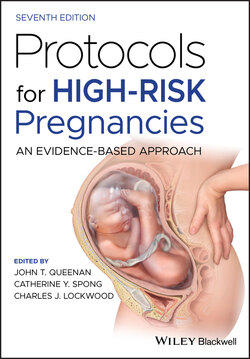Читать книгу Protocols for High-Risk Pregnancies - Группа авторов - Страница 15
Alcohol use during lactation
ОглавлениеApproximately half of all breastfeeding women in the US report consuming alcohol; however, relatively little is known about the consequences of alcohol intake in breastfeeding women and their infants. Alcohol consumed by the mother passes into the breast milk, with levels peaking 30–60 minutes after an alcoholic beverage is consumed. While the alcohol from one drink can be detected in breast milk for about 2–3 hours, alcohol is detectable in the breast milk for about 4–5 hours if the mother consumes two drinks and for about 6–8 hours if she consumes three drinks, and so forth. Other factors influencing the amount of alcohol in breast milk include how fast it is consumed, whether it is consumed with food, the mother’s body mass index (BMI), and how quickly she metabolizes alcohol.
It has been demonstrated that alcohol inhibits the release of oxytocin, the hormone which stimulates milk ejection, an effect which decreases the amount of milk available to the nursing infant. Higher amounts of alcohol intake appear to have a greater effect; however, one study noted that drinking as little as 0.3 g alcohol per kg (a little more than a 12‐ounce beer or mixed drink) may reduce milk production by about 10%. Other studies have observed that the infants of mothers who consume alcohol tend to take in less breast milk per feeding and may also have disrupted sleep patterns.
The long‐term effects of alcohol delivered to infants via breast milk have not been well studied. In a study of 400 infants born to women in a health maintenance organization, motor development, as measured by the Psychomotor Development Index (PDI), was significantly lower in infants exposed regularly to alcohol in breast milk (even after controlling for prenatal alcohol exposure), with an inverse dose–response relationship noted between frequency of maternal alcohol consumption and scores on the PDI. In a similar study from the same group, however, there was no association between alcohol exposure and scores on the Griffiths Developmental Scales in 18‐month‐old children.
Breastfeeding while consuming alcohol may carry some neurodevelopmental risk for the infant; however, of greater concern is the impact alcohol may have on childcare and safety. Parental use of alcohol is considered a risk factor for sudden infant death syndrome and other infant sleep‐related deaths. Maternal alcohol use disorder (AUD) is associated with poor parenting skills, inadequate supervision, family disruption and conflict, family mobility, and increased risk for child abuse and neglect.
